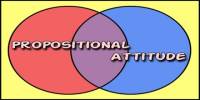Our era is the most peaceful in our species’ history, and levels of international collaboration are at all-time highs. Yet occasionally there are unexpected disputes and collaboration fails. Researchers in the fields of psychology, economics, and political science have long worked to understand when and why cooperation is preferable to competition.
Interesting new findings came from a recent study that examined the brain processes involved in these judgments.
Economic Games
Interacting with others is complicated. To determine how to behave, we must consider our own desires, those of others, and the context in which we find ourselves. The choice of whether to be friendly or antagonistic is important. It is challenging for scientists to comprehend how individuals decide whether to cooperate or compete due to the complexity of social decisions.
In order to address this, scientists developed games that streamline social interactions. Participants in these games can win money, but how much they win relies on their choices and those of other players.
The Prisoner’s Dilemma is a well-known example of this kind of “economic game” that tests individuals’ willingness to collaborate with one another. The scenario proceeds as follows: Two convicts are questioned by the police about a crime they allegedly committed together but for which the investigators lack any proof in separate rooms. They might escape punishment if they both work together and remain silent.
The one who chooses to cooperate will receive a harsh punishment, but the “defector” will be allowed to leave without punishment if one of the convicts betrays their collaborator. Therefore, it may seem enticing to defect. Yet, there is a risk: If both accuse each other, investigators will send both to prison. This story became a game for two players.
If they work together, they both profit financially, but they are tempted to turn on one another to gain more money (at the expense of the partner). However, if both players betray each other, neither receives any money.
According to research, even when they know they won’t see the other person again in the Prisoner’s Dilemma, people typically decide to collaborate. Players have a tendency to take revenge following betrayals when playing often with the same person, which in the long run also lowers the likelihood of additional betrayals. You can play the game on this website and observe for yourself how a population’s attitudes about cooperation might change over time.
Researchers have used the prisoner’s dilemma very effectively to explore a variety of factors that influence people’s decisions to cooperate, but it has several limitations. There are only ever two options available to people: cooperating or not.
But in everyday life, things are not that simple. We might not want to “fully” cooperate but we also might not want to be overly competitive if a coworker is being difficult and then requests for assistance. To keep things peaceful at work, we might cooperate a little bit, but we won’t put too much effort into actually helping.
How do people decide how cooperative to be? And how do they adjust their cooperation over time?
Measuring continuous changes in cooperation: The Space Dilemma
In a new game that allowed for full cooperation, full competition, or some combination of the two in our recent study that was published in Nature Communications, 54 volunteers participated. We achieved this by asking two players to choose their positions in a virtual, two-dimensional space where a reward would sporadically appear.
The winner of that round was whoever was closest to the prize location; the closer they were, the more money they won. The location of the award in the area was absolutely arbitrary. By increasing their odds of winning, those who positioned themselves in the middle were being competitive.
However, as the prize frequently fell outside of the middle, the average amount they really earned was typically modest. Conversely, the two players could work together by positioning themselves at the opposite ends of the area. In this scenario, each player’s odds of winning one round decrease, but if they do, their prize will be higher, allowing them to win more money over the course of many rounds.
As in the Prisoner’s Dilemma, this only works if both cooperate. One will win considerably more frequently at the expense of the other if one goes to one end while the other seeks to win in the middle. Participants simply placed themselves in the space on each round, but they did so without first observing the placement of the other player.
As participants levels of cooperation or competitiveness were measured by their location in the space, we called our new game the “Space Dilemma.” By gradually raising the prize money for the winner and, conversely, the penalty for the loser, we developed various games that discourage cooperation.
People constantly adjust how cooperative they are
People were generally cooperative, but as we increased the amount they would lose if they were betrayed, they became more and more competitive. They also constantly adjusted their response to the other players’ level of cooperation.
To determine how shocked a player would be at the other person’s position, we used a mathematical model. We discovered that people adjusted their own positions on the following round, making themselves more competitive, even though the opposing player’s position was just slightly more competitive than expected.
One of the two participants played the game while we scanned their brain. We found that an area called the right temporal-parietal junction (TPJ) signalled how surprised players were at the other person’s level of cooperation.
The surprise was placed in context of how much money may be lost if they were betrayed, and decisions on how cooperative to be next time were led by portions of the medial prefrontal and cingulate cortex brain areas linked to both making decisions and comprehending others.
Because the brain constantly observes and responds to other people’s social conduct, this study demonstrates how people continuously modify how cooperative they are. In a broader sense, it is crucial to comprehend what encourages cooperative behavior in order to improve people’s wellbeing and, ultimately, lessen international disputes and promote peace.
















